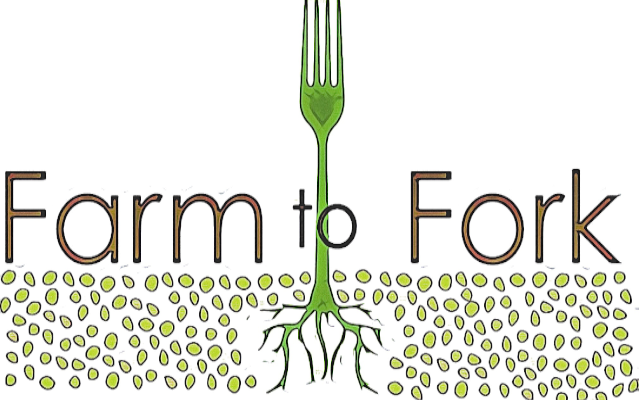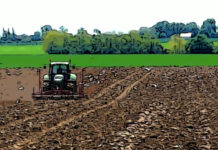Farm to Fork is one of the 10 chapters in the roadmap of the so-called.
European Green Deal
, the new ‘growth strategy for Europe‘ presented in Brussels on 11.12.19. (1) The Commission led by Ursula von der Leyen declares its intention to promote agroecology. Too good to be true?
Farm to Fork strategy–in a booklet
The Farm to Fork (F2F) strategy-announced for March 2020, in the form of a white paper-is sketched out in a pamphlet of a few lines. (2) Important news, at a glance, the actual scope of which is difficult to grasp, however. WHEREAS, ‘40 percent of the total EU budget should contribute to climate action.’
– fisheries. ‘30 percent of fisheries funding should contribute to climate goals‘. That is, 30 percent of the aid will be transferred to the mechanical industry to reduce emissions from marine engines of European-flagged fishing vessels. Not even a mention of safeguarding the fish stock. Which is threatened every year by disproportionate catch quotas, as seen,
– sustainability at the right price. This is intended to ‘ensure that citizens have affordable sustainable food products’. The concept of sustainable agriculture, as we have seen, already lends itself to being misrepresented precisely in order to obtain the public subsidies allocated for this purpose in the RDPs (Rural Development Plans) under the CAP (Common Agricultural Policy). It must therefore be clarified to what ”sustainability
sustainability
‘ one intends to refer to. The adequacy of prices to remunerate production without penalizing consumers, after all, is closely linked to transparency in the value chain, (3)
– agroecology. We need to ‘cope with climate change,’ ‘protect the environment,’ ‘preserve biodiversity,’ and ‘promote organic farming,’ the Commission indicates. Sound words, but they will have to be matched by adequate public contributions to promote the conversion and maintenance of organic crops. Not only in the latifundia, but also in the microscopic plots that characterizepeasant agriculture. Remembering that organic is the only true agroecology that can save Europe from the environmental crisis, as also shown in the recent study by IDDRI(Institut pour le Développement Durable et les Relations Internationales).
Farm to Fork, F2F. The 5 lines of intervention
The booklet continues with brief mentions of the 5 lines of action envisioned by Ursula von der Leyen’s Commission.
1) Ensure a fair transition. ‘Ensuring a fair and equitable transition for all those working in the agricultural and maritime sectors in Europe.’ First and foremost, fairness depends on the effectiveness inimplementing the Unfair Trading Practices (UTPs)directive , which is precisely aimed at restoring balance in supply chain relations. (4) And it cannot go without new common rules, for the protection of workers and the fight against their exploitation,
2) Cut chemistry in agriculture. ‘Reducing dependence on chemical pesticides, fertilizers and antibiotics, their use and related risks‘. A recent study of the agricultural system in the U.S. shows the damage to ecosystems and agricultural production itself caused by the abuse of agrotoxics and nitrogen fertilizers. As for public health risks, the Commission is 10 years behind on the analysis of the so-called ‘cocktail effect‘. As for antibiotics,WHO has been clear in stating that ‘thereis no time to waste.‘
3) Innovate to protect crops. Theincipit ‘develop innovative methods in agriculture and fisheries to protect crops from pests and diseases’ lends itself to two conceptually antithetical interpretations. The first relates to the development of so-called precision agriculture. For resource savings and maybe even mechanical weeding. Instead, the second hypothesis is to de-regulate new GMOs (or NBT, New Breeding Techniques), in defiance of the precautionary principle.
4) Preventing and combating food fraud. Jean-Claude Juncker had given the Commissioner for Culture a ‘Knowledge Center‘ on the subject, after the bluff of the one deputed to food safety. The situation remains critical, as confirmed by the 12.4.19 report of the
EU Food Fraud Network
. We therefore look forward to reading the new proposed regulation,
5) Environmental sustainability of imported foodstuffs. ‘Food products imported from third countries must comply with EU environmental standards.’ Wish it were, the transposition of our #Buycott campaign! Palm oil, GMO soybeans, and American meats (!) It is imperative to take a stand against the aforementioned commodities, which for decades have been the leading causes of planet-wide land grabs and deforestation. This postulates the strengthening of the supply chains that make alternative foodstuffs in Europe. As well as sabotaging the treaty between the EU and Mercosur countries, where a duty-free quota of 259 thousand tons/year of meat from deforestation has already been granted. (5)
Europe, a happy island?
The promises of Commissioner Ursula von der Leyen and her right-hand man Frans Timmermans undoubtedly look promising, assuming they find concrete implementation and are not intended to give the green light to new GMOs by derogating from the risk assessments always prescribed for ‘conventional’ GMOs.
It amazes, however, the lack of consideration of human rights outside Fortress Europe. Can we tolerate slavery and child labor in the cocoa, hazelnut and palm oil supply chains beyond measure, on the 30th anniversary of the UN Convention on the Rights of the Child?
Supply-chain responsibility must be asserted-against all operators downstream in the supply chain (first and second industrial processing, distribution)-for all crimes anywhere committed upstream in the supply chain. Land robbery, exploitation of workers and children. Without justification for the tertiarization of abuse, following in the footsteps of the Kimberley process developed 20 years ago in the diamond supply chain. (6)
Social, as well as environmental, sustainability of supply chains is the only way to overcome the neo-colonialist paradigm of the happy island on the backs of those who live outside their backyard. Affirming theequity of supply chains wherever they originate is at the same time a prerequisite for mitigating migrant flows from Low-Middle Income Countries (LMICs). Who precisely need to be helped, rather than exploited at home. In line with, among other things, the SDGs (
Sustainable Development Goals
) in UN Agenda 2030.
Dario Dongo
Notes
(1) SEE https://ec.europa.eu/info/strategy/priorities-2019-2024/european-green-deal_it. The Roadmap at https://ec.europa.eu/info/sites/info/files/european-green-deal-communication-annex-roadmap_en.pdf
(2) See Farm to Fork brochure in Italian, at https://ec.europa.eu/commission/presscorner/api/files/attachment/859251/Farm_to_fork_it.pdf.pdf
(3) On supply chain relationships and measures taken so far at the European level, see https://www.greatitalianfoodtrade.it/mercati/filiera-alimentare-forum-di-alto-livello-i-buoni-propositi-di-bruxelles
(4) See EU dir. 2019/633
(5) It will be much more difficult to oppose palm oil imports through Singapore after the entry into force of the free trade treaty with the EU on 21.11.19. V. https://www.greatitalianfoodtrade.it/mercati/accordo-tra-ue-e-singapore-trattato-tossico-già-in-vigore
(6) See Anne Pitsch Santiago (2014) Guaranteeing conflict free diamonds: From compliance to norm expansion under the Kimberley Process Certification Scheme. South African Journal of International Affairs, 21:3, 413-429. doi: 10.1080/10220461.2014.972441
Dario Dongo, lawyer and journalist, PhD in international food law, founder of WIISE (FARE - GIFT - Food Times) and Égalité.








